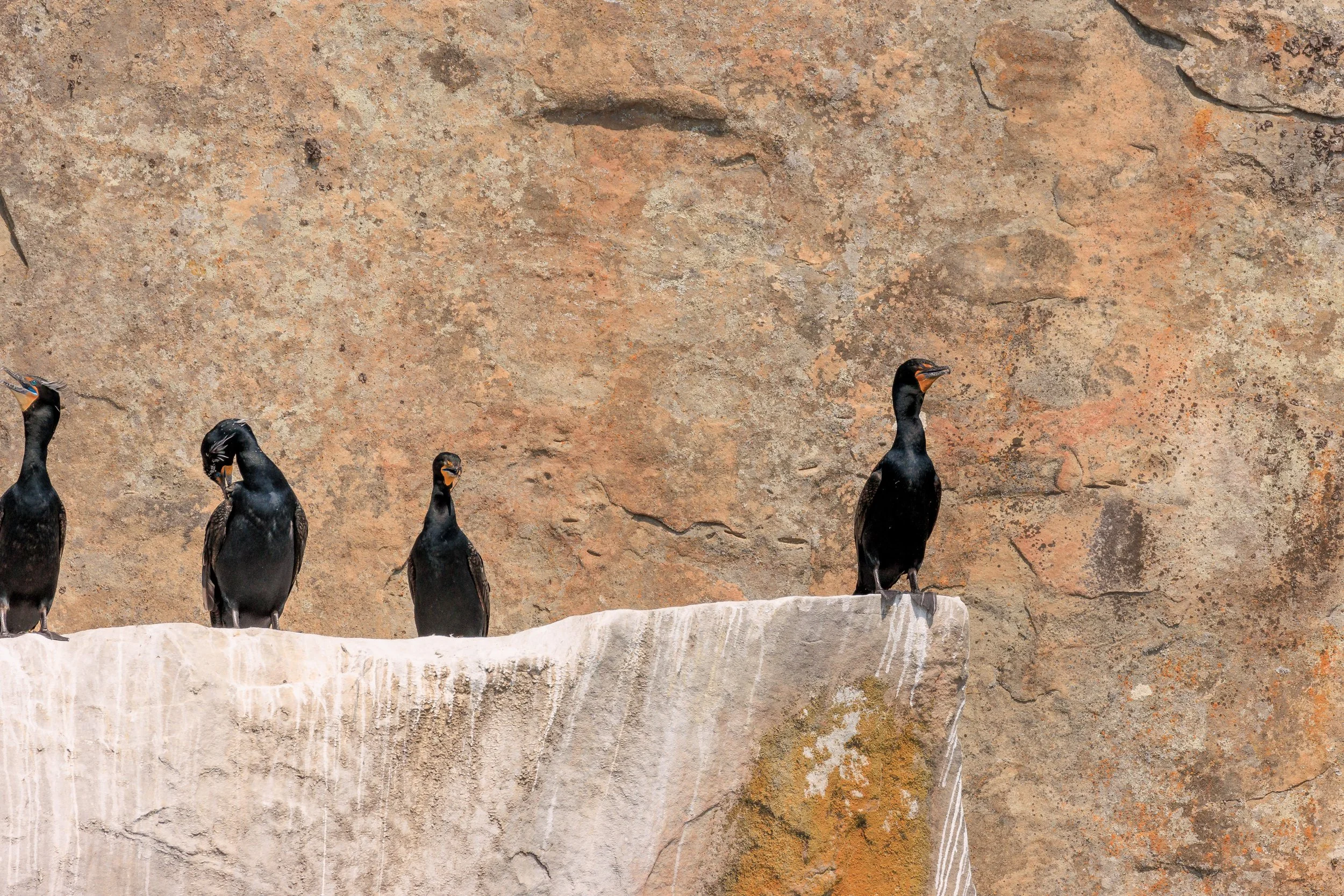May 17, 2023 - T101's cruise by Bowyer Island
Whales are beautiful creatures that captivate our imagination and inspire a sense of wonder. Among them, orca, also known as killer whales, stand out for their complex social structures and intelligence - not dissimilar to humans. Orca also stand out due to their uncommon reproductive cycle - they go through menopause. Just like human females, female orca experience menopause, and their journey through this stage of life is a remarkable tale of leadership and family dynamics.
Today we encountered the Bigg’s orca matriline known as the T101’s. At the age of (at least) 54 years old, matriarch T101 Reef has likely already entered menopause. She will no longer produce calves, and will instead be investing her time and energy into ensuring her two sons’ survival.
The T101 matriline:
T101 Reef ♀ (≤1969)
T101A Rush ♂ (1993)
T101B Lagoon ♂ (1997)
Menopause (the cessation of reproductive cycles) is commonly associated with human females. However, researchers have discovered that orcas are one of the few non-human species that also go through this transformative stage. Female orca typically reach menopause in their 40s or 50s, and many female orca live well into their 70s or 80s.
At this time, the only species in the world that are thought to go through menopause are humans, orca, false killer whales, short-finned pilot whales, narwhals, and belugas.
T101 Reef (front) and T101B Lagoon (back).
In orca society, family groups known as matrilines are led by matriarchs - the oldest and most experienced females. Menopause plays a crucial role in shaping the dynamics within these matrilines. Once a female reaches menopause, she is no longer burdened with the responsibilities of reproduction, allowing her to devote her energy to leading and nurturing her family. This allocation of resources improves their chances of survival and contributes to the overall resilience of the pod.
The wisdom and experience of the post-menopausal female orca are highly valued within their matrilines. Research indicates that these elder females play a significant role in the survival and success of their offspring and descendants. Their knowledge of hunting strategies, prey migration patterns, and social interactions is passed down through generations, ensuring the matrilines' survival.
The similarities between menopause in orcas and humans are striking. Both involve the cessation of reproductive cycles and the emergence of unique roles within the social structure. In both cases, older females assume leadership positions and become vital sources of knowledge and guidance for their communities.
Menopause in orcas represents a fascinating chapter in their lives, highlighting the significance of female wisdom, leadership, and familial bonds within their intricate social fabric. As we strive to understand the wonders of the natural world, observing and appreciating the experiences of these remarkable creatures can provide valuable insights into our own human existence. The matriarchs of the orca world remind us of the power of collective knowledge and the enduring strength of family ties.
After departing from the T101’s we took a few more short stops to see some other wildlife. The sea lions were being exceptionally chatty today as they fought over the best spots to rest on the rocks. We also saw some Harbour seals ‘banana-posing’, or sitting with their heads and their tails out of the water. This pose can help them thermoregulate (control their body temperature).
Our final stop was at the Gabriola Bluffs where our Cormorants are currently busily nest building. It is always incredible to see these little black birds darting back and forth as they collect seaweed and other materials to line the nests, or they pop out of the ocean with their latest catch for themselves and their chicks.
Photos were taken by Marine Naturalist Carmen Murphy.
T101A Rush.
A different kind of angle!
T101B Lagoon.
T101B Lagoon.
T101A Rush.
T101A Rush.
T101A Rush.
T101B Lagoon.
Banana-posing Harbour seals.
Harbour seals - all the colours of the rainbow.
Our sea lions can be quite dramatic.
Need to make the nest nice and comfy!
Nesting Pelagic cormorants.
The mainland of British Columbia.


























